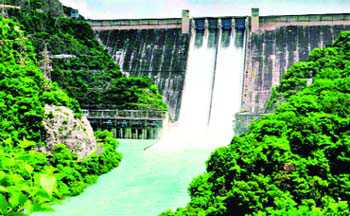Dinesh Kanwar
Hamirpur, July 12
Over 50 years after losing their lands, 245 families of Bilaspur are yet to find space that they can call their own. The encroachments in the town have deprived many of their land and few are yet to be allotted any land by the state government.
As many as 25,000 sq m government land, in the heart of Bilaspur town, is under encroachment and the revenue authorities are facing a tough time in removing these.
Sources said the area under encroachment could be more that 35,000 sq m, if demarcation was done fairly. Reliable sources in the Revenue Department said 25,000 sq m government land was encroached upon by only 25 people of the town, who were alleged to have political shelter. The encroachment had not only congested the roads of the town but had also deprived the Bhakhra oustees of their land.
Sources said as many as 245 families who had lost their land in the Bhakhra Dam project were yet to be given land to construct their own houses. The Bhakra Dam Project was initiated in the early 1950s and was commissioned in 1963. It was the highest dam in Asia when it was constructed and was to produce electricity and provide irrigation facilities to farmers of Punjab, Haryana and Rajasthan. The capital of Bilaspur estate was submerged in the dam, named Govind Sagar, and many villages of the area also met the same fate.
Though the state government had made special provisions to regularise 150 sq m land to the encroachers, yet none had made dispossession of the encroached land. It was learnt that in 1999, there were 419 applicants who were to be given land. Out of these, 56 were given land in 2002 and 118 were given land in 2013, whereas 245 were still waiting.
Mansi Sahai Thakur, Deputy Commissioner, Bilaspur, said she had convened a meeting with people who had encroached over 500 sq m government land and suggested them to release the encroached land or else the administration would be forced to initiate stringent action against all encroachers. They had been told that on the orders of the High Court, they would also face disconnection of electricity and water connections if they did not dispossess the land, she added.
Unlock Exclusive Insights with The Tribune Premium
Take your experience further with Premium access.
Thought-provoking Opinions, Expert Analysis, In-depth Insights and other Member Only Benefits
Already a Member? Sign In Now










